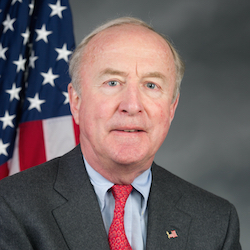
The House Appropriations Committee is expected to consider Housing and Urban Development funding contained in a subcommittee fiscal year 2018 spending bill on Monday night. The bill is a “mixed bag,” according to LeadingAge.
The legislation includes a net discretionary total of $38.3 billion for HUD, a decrease of $487 million below the fiscal year 2017-enacted level and $6.9 billion above the request, according to the committee. The bill provides $573 million for the Section 202 Housing for the Elderly program, $70.6 million above the current level.
“There’s some good news in there,” Linda Couch, LeadingAge’s vice president of housing policy, told McKnight’s Senior Living. The House Transportation, Housing and Urban Development Appropriations Subcommittee bill, which was voted out of the subcommittee on July 11, she said, “rejected all of President Trump’s rental reforms, which would have been really damaging, both to older adult residents of HUD-assisted housing, including 202 residents, and owners, because it would have raised rents on residents and frozen subsidy levels for owners at last year’s levels.”
In fact, Couch said, Trump’s rental reforms contained some provisions that could have been seen as attractive targets for cuts at a time when the federal government is looking to save money, so LeadingAge is pleased that the subcommittee’s bill contains:
- A “significant” increase in Section 202 program funding to accommodate increased renewal needs for rental subsidies for next year.
- An increase for the service coordinator program, which not only would preserve existing service coordinators positions currently serving residents but also would add service coordinators to additional properties. Only about half of Section 202 properties currently have service coordinators, Couch said. “The more service coordinators we can get, the more residents can be served, can be given the opportunity to age in place. So that’s great,” she added.
The subcommittee’s bill, Couch said, also contains some bad news for affordable housing, however:
- Voucher program funding that LeadingAge considers “insufficient” for existing housing. “The bill would underfund the housing choice voucher program by about 140,000 units, according to the Center on Budget and Policy Priorities, so that’s 140,000 households that get a housing voucher today that housing authorities won’t have the cash to serve next year,” Couch said. “About 25% of voucher households are seniors, so we really rely on that program as a stable source of funding.”
- Public housing funding cuts. Approximately one-third of public housing units serve seniors, Couch said, adding: “You can’t cut public housing without putting senior housing at risk.”
- Reduced funding for the HOME Investment Partnerships block grant program that enables state and local governments to assist those who wish to develop or preserve affordable housing. “We’ve seen HOME funding decline pretty steadily over the last several years,” Couch said. In the subcommittee bill, the program is funded at $850 million, $100 million below the current year.
- No increase in funding for homelessness assistance grants. The funding in the subcommittee bill remains at $2.4 billion. “Homelessness among seniors is on the rise and is expected to increase with not just the increasing senior population but because the increasing senior population is going to be poorer than before,” Couch said. “And so if we don’t do anything to combat it, homelessness will increase among seniors.”
In late June, LeadingAge held a Save HUD 202 rally in Washington, D.C. Those efforts continue.
LeadingAge, Couch said, will be advocating to improve funding for all HUD programs affecting older adults. “Every HUD program is a senior housing program, as far as we see it,” she said.
The organization also will be keeping an eye on whether a rental assistance demonstration program to help older Section 202 properties access private capital for preservation efforts will be expanded in some version of the HUD appropriations bill in the House or later in the Senate.
“We think that makes a lot of sense,” Couch said. “It protects the significant investments that Congress has already made in these programs.”



